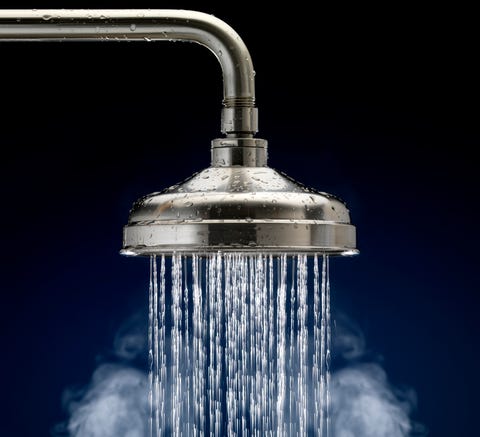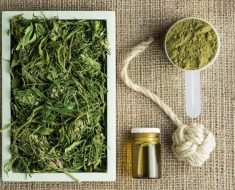So you have a scratchy throat, a cough, a headache, and your Covid test comes back negative. What do you do about getting rid of the common cold you just caught?
While other scientific advances seem to be speeding ahead, researchers haven’t yet been able to find a cure for the common cold. But that doesn’t mean you have to sit around feeling miserable.
In the seven to ten days it takes your body to fully recover, there’s a lot that you can do to help relieve the classic and uncomfortable symptoms of a cold—you know, the runny nose or congestion, the scratchy throat, the annoying headache. One way is to make a stop at the jam-packed cold and flu aisle at the drugstore. There, you will find some good remedies to help you stop that cold from making you feel so bad.
But other remedies that relieve cold symptoms may be as close as your own kitchen. Or desk chair or sofa cushion. There’s actual scientific evidence on classic home remedies like chicken soup. And there’s now even a hint that old-is-new-again strategies like meditation could even help you get over a cold.
Some of these legitimate remedies may even help speed up your recovery time. It’s not the same thing as a cure, but it’s a lot better than being miserable. And strategies such as getting enough sleep and keeping up your handwashing game may help stop colds in their tracks in the first place.
So the next time you come down with a cold, use these tips to battle it and get back on your feet.
1) Have hot tea or chicken soup.
Or really, just have any hot liquid. There’s a reason people always tell you to drink tea or have chicken soup. “Hot liquids increase your mucociliary clearance rate,” explains Bruce Barrett, M.D., professor in the department of family medicine and community health at University of Wisconsin – Madison. You have little hairs (cilia) in your respiratory tract that help sweep mucus from the bottom of your lungs all the way up to the front of the nose, he explains. “Hot fluids increase that activity,” he says. “They actually measure it by putting a small amount of dye in the back of the throat and measuring how long it takes to go through the end of the nose.” Some research suggested chicken soup might do it better than other liquids. “I’m unconvinced,” says Dr. Barrett, although he says that if you like chicken soup and it makes you feel good, have it.
2) Gargle with salt water.
Gargling with salt water a few times a day during cold and flu season may help with swelling and loosening of the mucus. Mix and dissolve about one-half teaspoon of salt in warm water and gargle a few times a day.
3) Take a steamy shower.
The steam from a hot shower can moisten your sinus passages and throat as well as help loosen congestion. This also helps to relax your achy muscles.
4) Relieve stress; maybe even meditate.
“When you’re under stress, your immune system ends up under-reacting to viral and bacterial infections,” says Sandra Adamson Fryhofer, M.D., internist and past president of the American College of Physicians. Perhaps that’s why a study conducted by Dr. Barrett and colleagues, published in PLoS One found that mindfulness meditation training reduced the incidence, duration, and severity of their colds. That doesn’t mean you can meditate a cold away in just one sitting session—study participants had 8 weeks of training. But it does suggest that making meditation routine could help you avoid getting sick. The study also looked at exercise, by the way, and found that people who did regular exercise were also less likely to get colds.
5) Consider zinc.
Many people swear that zinc, usually in lozenge form like Cold-Eeze and Zicam, reduce a cold’s symptoms and severity, especially if you take them within the first day or two of your cold. “There’s no definite proof, but it looks like it probably does,” Dr. Barrett says.
6) Try echinacea.
The research on whether or not this herb can prevent onset of a cold or help you get over one faster goes back and forth. Dr. Barett didn’t find definitive evidence, either, but he did discover something interesting in his research. His group gave either placebos or echinacea to some people, and no pills to others. Then, they watched to see who got colds.People who had some positive experience with echinacea—they’d taken it before and thought it worked—and who received pills, had colds that were about 2.5 days shorter than people who didn’t get any pills. It didn’t matter whether the pill actually had echinacea in it or not. “There’s a very strong placebo effect with colds,” Dr. Barrett says. That means if you think echinacea (or another harmless remedy like chicken soup) works, go for it.
7) Consider OTCs
Colds famously come with headaches, and a simple pain reliever should help alleviate those. Antihistimines can work for colds, too, if you take older generation ones, like Benadryl. “They do reduce mucus secretion,” says Dr. Barrett. “And for a lot of people, they provide a little sedation.” Which can be welcome when you’re too stuffy to sleep and too exhausted not to want to. “I don’t really recommend them, but if people want to take them, it’s fine,” says Dr. Barrett. Just beware: the new, non-sedating antihistimines won’t work at all.
And please don’t ask for antibiotics. They don’t help with colds and have the potential to make antibiotic resistance worse for everyone. When you’re suffering, you want anything that can work, we know. Turn to Netflix. Beg someone to make you chicken soup. Anything. But just don’t go the antibiotics route.
8) Eat the right foods.
That’s always good advice. But there may be something to healthy foods’ ability to prevent a cold in the first place. “If a person has certain healthy habits, the immune system in general is stronger,” says Sharon Bergquist, M.D., assistant professor of medicine at Emory University. “Gut bacterial balance is a key part of your immune system,” she says. So you want to feed your good bacteria what they like to eat; that’s the category of foods considered to be “prebiotics.” Like fruits, vegetables, legumes, nuts and seeds. What they have in common is fiber. “All prebiotics are fiber, but not all fiber is prebiotics,” she says. But if you load up on the foods above, you’ll get the type of fiber your gut bacteria likes.
9) Get enough sleep.
Getting enough sleep is critical to keeping your immune system strong, which you will need to fight germs and ward off a cold faster. A study in the Archives of Internal Medicine found that people who slept less than 7 hours a night were three times more susceptible to colds than those who slept 8 or more hours per night.
10) Wash your hands.
You’ve heard it before, because it works. Soap and water is perfectly fine; these dislodge and wash away germs. Hot water feels great, but if you’re in a place where there’s none around, don’t worry: research from Rutgers University found no difference in cleaning power when water was 60 (cold), 80 (warmish), or 100 degrees. But time does matter. The longer you scrub, the fewer the germs.
Source: Read Full Article






